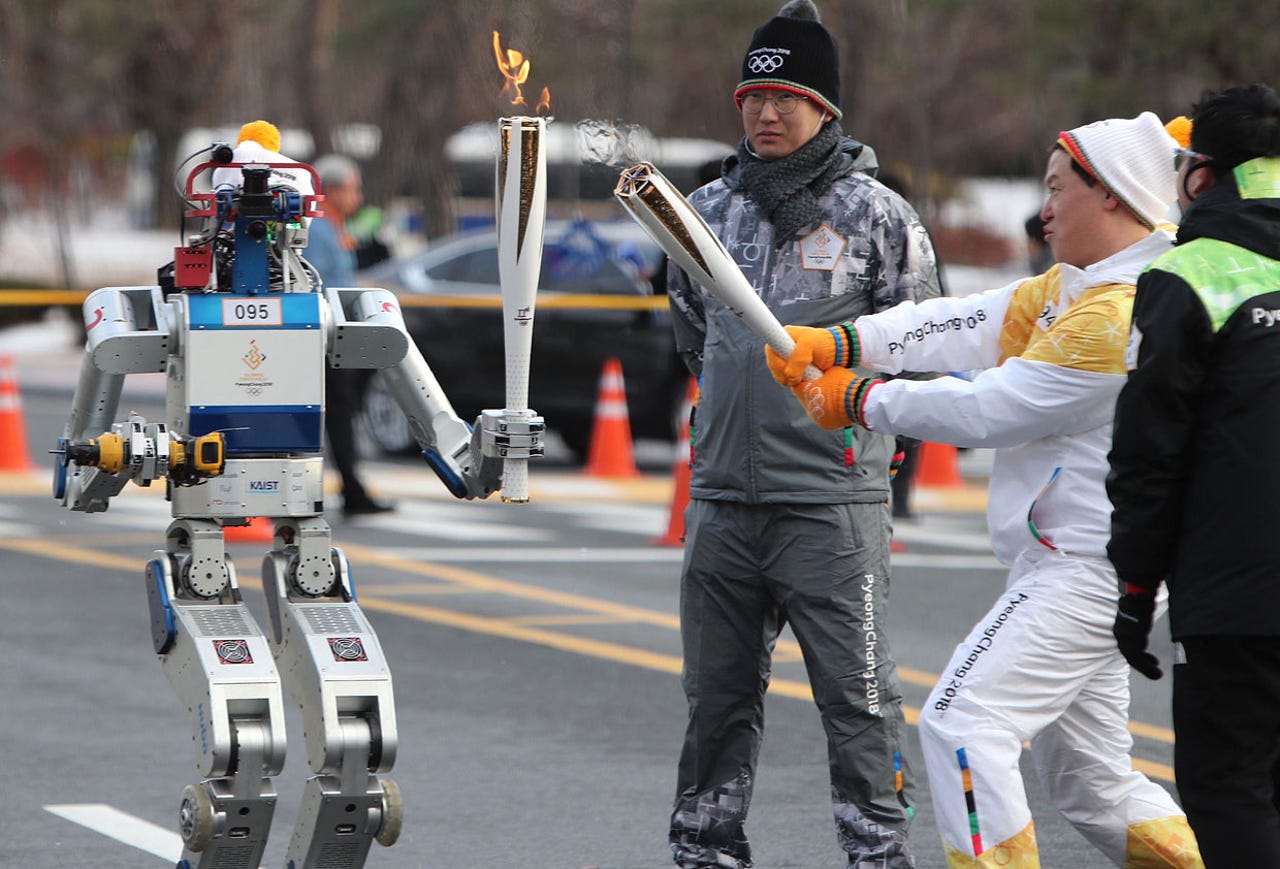Robots will compete for attention at 2018 Olympics


When the 2018 Winter Olympic Games kick off in Pyeongchang on February 9, there will be a lot of buzz about the dozens of robots patrolling airports, stadiums, and facilities.
Perhaps that's not surprising, given that one of the torch bearers this year was a walking humanoid created by the Korea Advanced Institute of Science and Technology (KAIST).
A floor cleaning bot is roaming the media center in PyeongChang
The man organizing the various teams behind the robots at this year's Games is KAIST professor Oh Joon-ho.
Oh told local media that his mission was to "best demonstrate Korea's robotic technology."
Though it gets second billing to Japan when it comes to robotics, South Korea is one of the world's preeminent developers of autonomous technologies. For the last two years, the South Korean government has been eyeing the Games as a showcase for the country's robotics sector.
The Ministry of Trade, Industry, and Energy has invested around USD $2 million to support eight companies rolling out robots to support the Games.
A total of 85 machines will be doing everything from painting murals to doling information on schedules, transportation, and tourist attractions to visitors and athletes. Talking robots will speak Korean, English, Chinese, and Japanese.
From a media center hosting reporters, a robotic vacuum cleaner from LG has been lighting up Twitter. Venues in three cities, Pyeongchang, Gangneung, and Jeongseon, are planning to use small autonomous delivery robots to shuttle items between facilities.
Initially, Oh and his team were looking into security robots to help monitor crowds and facilities. Those plans fell apart due to budgetary concerns and because of the complications of coordinating between private companies and the Korean military, which is handling much of the event's security.